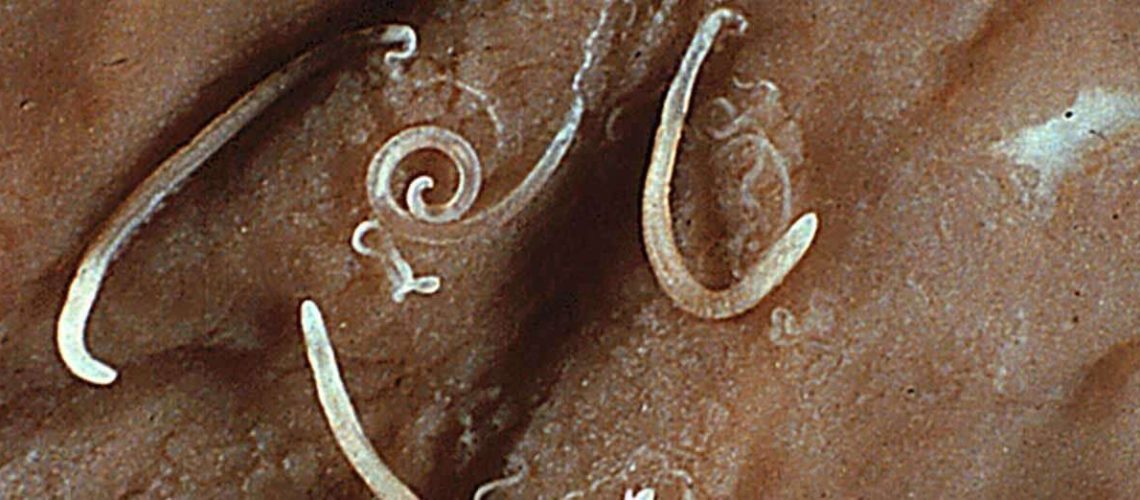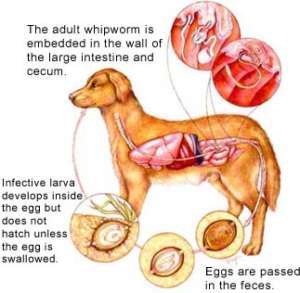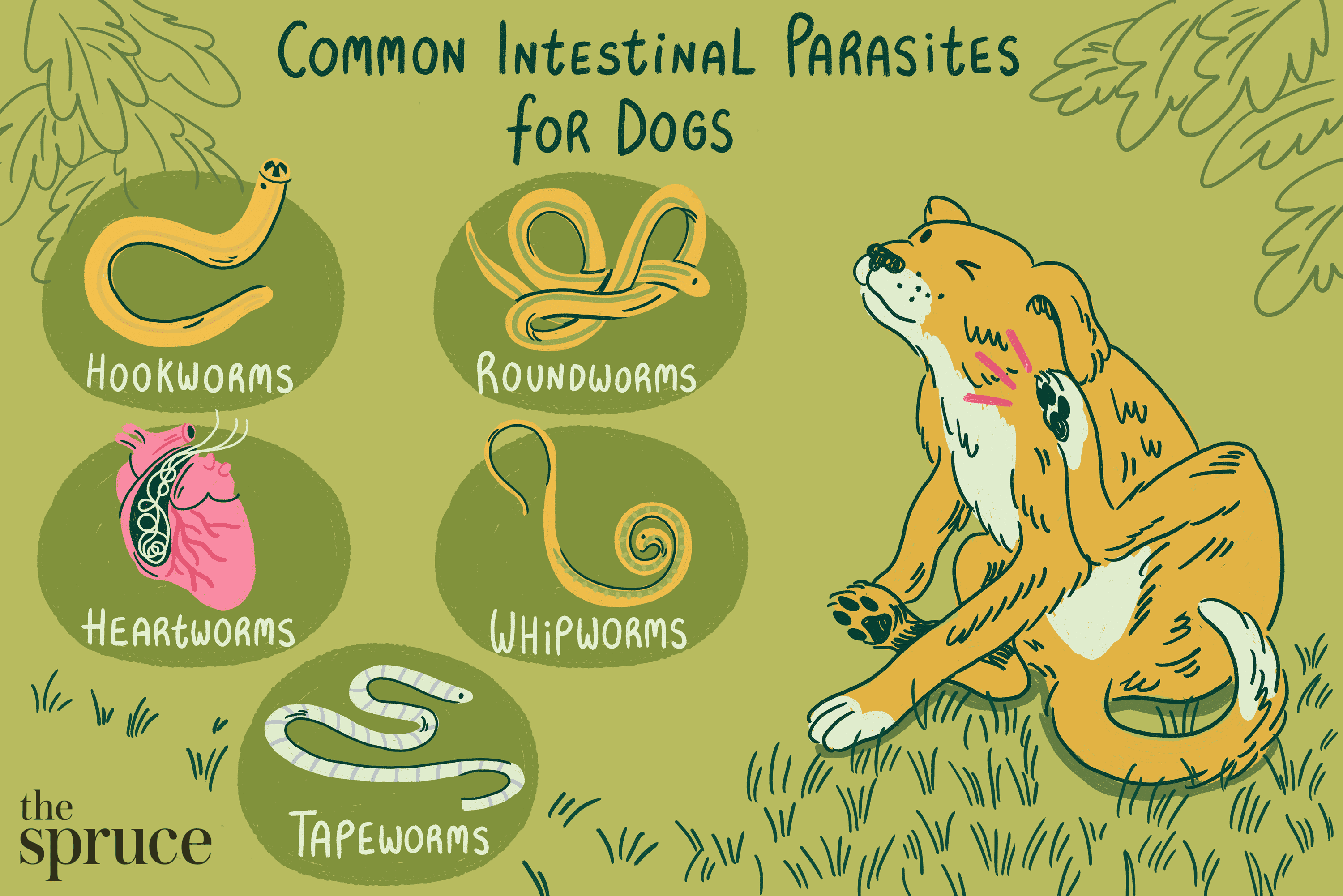Key Takeaways:
- Whipworms are a common intestinal parasite in puppies.
- They can cause diarrhea, weight loss, and anemia in puppies.
- Regular deworming is essential to prevent whipworm infestation.
- Whipworm eggs can survive for long periods in the environment, making prevention challenging.
- Veterinary guidance and fecal testing are necessary for accurate diagnosis and treatment of whipworms in puppies.
Are you a proud puppy owner or considering bringing home a new furry friend? If so, understanding the topic of whipworms in puppies is essential for their health and happiness. These tiny parasites may seem harmless, but they can wreak havoc on your pup's digestive system and overall well-being. By delving into this subject, you will gain valuable knowledge that can protect your puppy from the dangers of whipworm infestation. In fact, did you know that whipworms are one of the most common intestinal parasites found in dogs? Don't worry though, because in this article we will explore everything you need to know about whipworms in puppies and how to prevent and treat them effectively. So let's dive right in and ensure your puppy's health remains top-notch!
Whipworms: What They Are and How They Affect Puppies
Whipworms are a type of intestinal parasite that can infect puppies. They are small, thread-like worms that live in the large intestine of dogs. When puppies become infected with whipworms, it can cause various health issues.
Whipworms attach themselves to the lining of the large intestine and feed on the blood of the puppy. This can lead to inflammation and irritation in the intestines, resulting in symptoms such as diarrhea, weight loss, and anemia. If left untreated, whipworm infections can cause serious complications for puppies.
How Puppies Get Infected with Whipworms: Understanding the Transmission
Puppies get infected with whipworms by ingesting whipworm eggs that are present in their environment. These eggs are shed in the feces of infected dogs and can contaminate soil, grass, or other surfaces where puppies play or roam.
When a puppy comes into contact with contaminated surfaces, they may accidentally ingest the whipworm eggs while grooming themselves or eating. Once inside the puppy's digestive system, these eggs hatch into larvae and mature into adult whipworms within a few weeks.
Factors That Increase Risk of Whipworm Infection:
- Poor sanitation practices
- Living in crowded or unsanitary conditions
- Ingesting contaminated food or water
- Contact with other infected animals
Recognizing Whipworm Infection in Puppies: Common Symptoms to Look Out For
It is important for puppy owners to be able to recognize the signs of whipworm infection so that they can seek veterinary care promptly. The symptoms of whipworm infection in puppies can vary, but some common signs to look out for include:
Common Symptoms of Whipworm Infection:
- Diarrhea, which may contain blood or mucus
- Weight loss or failure to gain weight
- Anemia (pale gums, weakness)
- Dehydration
- Poor appetite
If you notice any of these symptoms in your puppy, it is important to consult a veterinarian for a proper diagnosis and treatment plan.
Preventing Whipworms in Puppies: Tips for Keeping Them Healthy
Preventing whipworm infections in puppies is crucial for their overall health and well-being. Here are some tips to help keep your puppy healthy and reduce the risk of whipworm infestation:
Tips for Preventing Whipworm Infections:
- Maintain good hygiene practices by regularly cleaning up after your puppy and properly disposing of feces.
- Avoid allowing your puppy to come into contact with contaminated soil or surfaces.
- Keep your puppy's living area clean and sanitized.
- Ensure that your puppy receives regular veterinary check-ups and deworming treatments.
- Provide a balanced diet and clean drinking water for your puppy.
By following these preventive measures, you can greatly reduce the risk of whipworm infection in your puppy.
Diagnosing Whipworm Infections in Puppies: Methods Used by Veterinarians
Veterinarians have various methods to diagnose whipworm infections in puppies. These diagnostic methods help determine if a puppy is infected and guide the appropriate treatment plan. Some common diagnostic methods used by veterinarians include:
Diagnostic Methods for Whipworm Infections:
- Fecal examination: A stool sample is examined under a microscope to look for whipworm eggs.
- Physical examination: The veterinarian examines the puppy for signs of whipworm infection, such as weight loss or anemia.
- Blood tests: Blood samples may be taken to check for anemia or other abnormalities that could indicate a whipworm infection.
Once the diagnosis is confirmed, the veterinarian can recommend the most appropriate treatment for the puppy's whipworm infection.
Treating Whipworms in Puppies: Recommended Approaches and Medications
Treating whipworm infections in puppies typically involves medication to kill the adult worms and prevent further infestation. The specific treatment approach may vary depending on the severity of the infection and the puppy's overall health. Veterinarians often prescribe deworming medications that are effective against whipworms.
Common Medications Used to Treat Whipworm Infections:
- Fenbendazole: This medication is commonly used to treat whipworm infections in puppies. It works by killing both adult worms and their eggs.
- Milbemycin oxime: This medication is effective against various intestinal parasites, including whipworms. It helps eliminate existing infestations and prevents future ones.
- Praziquantel: This medication may be prescribed if other parasites are also present alongside whipworms, as it targets multiple types of worms.
The veterinarian will determine the most suitable treatment option based on factors such as the puppy's age, weight, and overall health. It is important to follow the veterinarian's instructions for administering the medication and completing the full treatment course.
Long-Term Effects of Whipworm Infections in Puppies: What You Need to Know
If left untreated or if the whipworm infection is severe, there can be long-term effects on a puppy's health. Chronic whipworm infections can lead to complications such as chronic diarrhea, malnutrition, and anemia. These conditions can have a negative impact on the puppy's growth and development.
It is crucial to seek veterinary care promptly if you suspect your puppy has a whipworm infection. With proper diagnosis and treatment, most puppies can recover fully from whipworm infections without long-term consequences. Regular preventive measures, such as deworming and maintaining good hygiene practices, are essential for ensuring your puppy stays healthy and free from whipworms.
Long-Term Effects of Whipworm Infections in Puppies: What You Need to Know
1. Stunted Growth and Development
Whipworm infections in puppies can have long-term effects on their growth and development. These tiny parasites attach themselves to the lining of the puppy's intestines, causing irritation and inflammation. This can lead to poor nutrient absorption, resulting in stunted growth. Puppies infected with whipworms may not reach their full size or weight potential, which can affect their overall health and vitality.
Signs of Stunted Growth:
- Noticeably smaller size compared to littermates
- Delayed milestones such as teething or walking
- Lack of muscle development
- Thin or underweight appearance
It is important for puppy owners to be aware of these signs and consult a veterinarian if they suspect whipworm infection as the cause.
2. Chronic Diarrhea
One of the most common long-term effects of whipworm infections in puppies is chronic diarrhea. The presence of whipworms in the intestines causes ongoing irritation and inflammation, leading to frequent loose stools. This can result in dehydration, malnutrition, and discomfort for the puppy.
Treatment Options for Chronic Diarrhea:
- Deworming medication prescribed by a veterinarian
- Probiotics to restore healthy gut bacteria
- Dietary changes, such as a bland diet or specialized puppy food
It is crucial for puppy owners to address chronic diarrhea promptly to prevent further complications and ensure the well-being of their furry friend.
3. Weakened Immune System
Whipworm infections can weaken a puppy's immune system over time. The constant presence of these parasites puts stress on the body's defense mechanisms, making it more susceptible to other illnesses and infections. This can lead to a cycle of recurring health issues and a compromised overall immune response.
Preventive Measures for a Weakened Immune System:
- Regular veterinary check-ups and vaccinations
- Proper nutrition and balanced diet
- Minimizing exposure to contaminated environments
By taking proactive steps to strengthen their puppy's immune system, owners can help reduce the long-term effects of whipworm infections and promote better overall health.
Remember, early detection, proper treatment, and preventive measures are essential in managing whipworm infections in puppies. Stay vigilant and consult a veterinarian for guidance on your puppy's specific needs.
In conclusion, whipworms are a common parasite that can affect puppies. It is important for puppy owners to be aware of the symptoms and seek proper treatment from a veterinarian to ensure their puppy's health and well-being.
How does a puppy get whipworms?
The whipworm is one of the four most prevalent parasites found in the intestines of dogs. These parasites live in the cecum, which is the area where the small and large intestines connect within the dog's body. Dogs can contract whipworms by ingesting eggs from the environment, such as soil or other substances contaminated with dog feces.
How do I know if my puppy has whipworms?
If your dog is experiencing weight loss, weakness or lethargy, and is passing bloody or soft stools, they could potentially have a whipworm infection. While some mild cases of whipworms can go unnoticed for a long time without any symptoms, the presence of another illness that demands the immune system's attention may trigger an outbreak.
How long does it take to get rid of whipworms in puppies?
After a three-month treatment period, your pet should be fully recovered from whipworms. It is crucial to administer monthly prevention medications to help prevent and potentially treat whipworm infections.
Can a dog survive with whipworms?
Is it possible for whipworm to cause the death of a dog? If a dog has a severe infestation with a large number of whipworms, it can be fatal. It is crucial to regularly treat your dog with a whipworm-effective product like NexGard SPECTRA® or ParaGard®.
What do whipworms look like in puppy poop?
The main types of worms commonly found in dog feces are hookworms, whipworms, roundworms, and tapeworms. Hookworms are small worms with hook-shaped mouths. Whipworms appear as small threads that are thicker at one end. Roundworms resemble spaghetti and can grow to several inches in length.
Does dewormer get rid of whipworms?
There are multiple commonly used medications for treating whipworms, such as febantel, fenbendazole, milbemycin, moxidectin, and oxantel. These medications have proven to be effective in treating the infection.

















